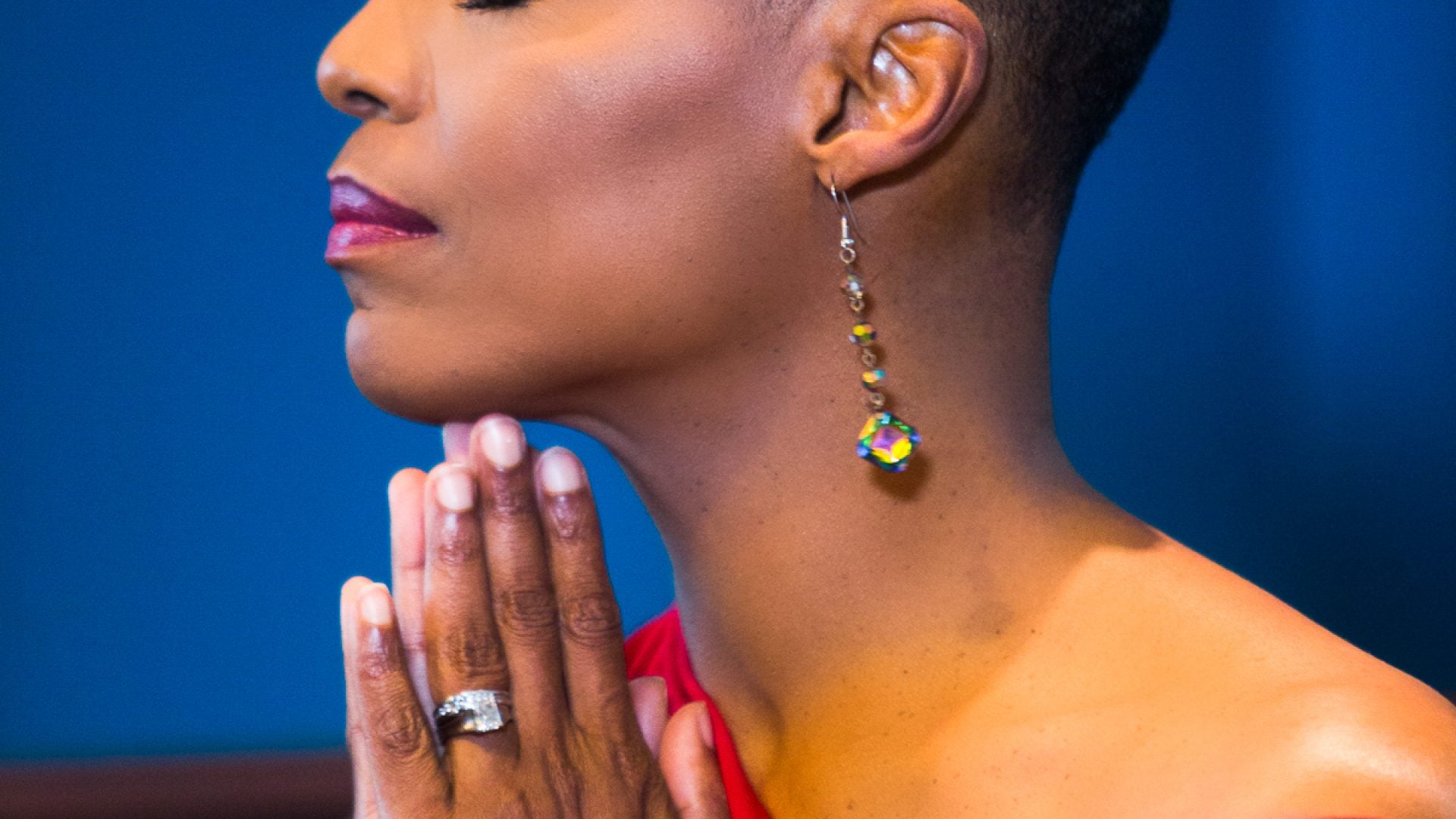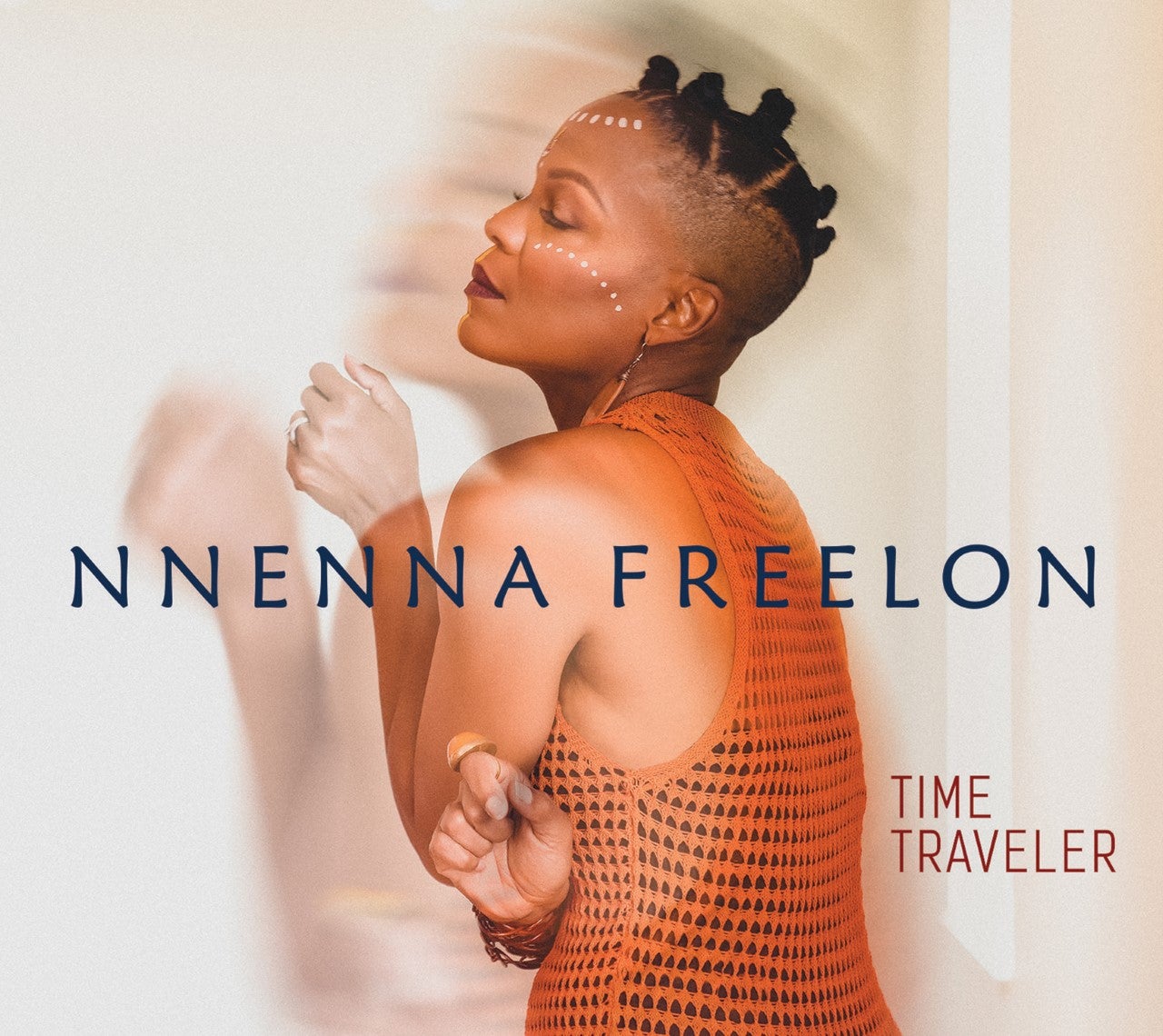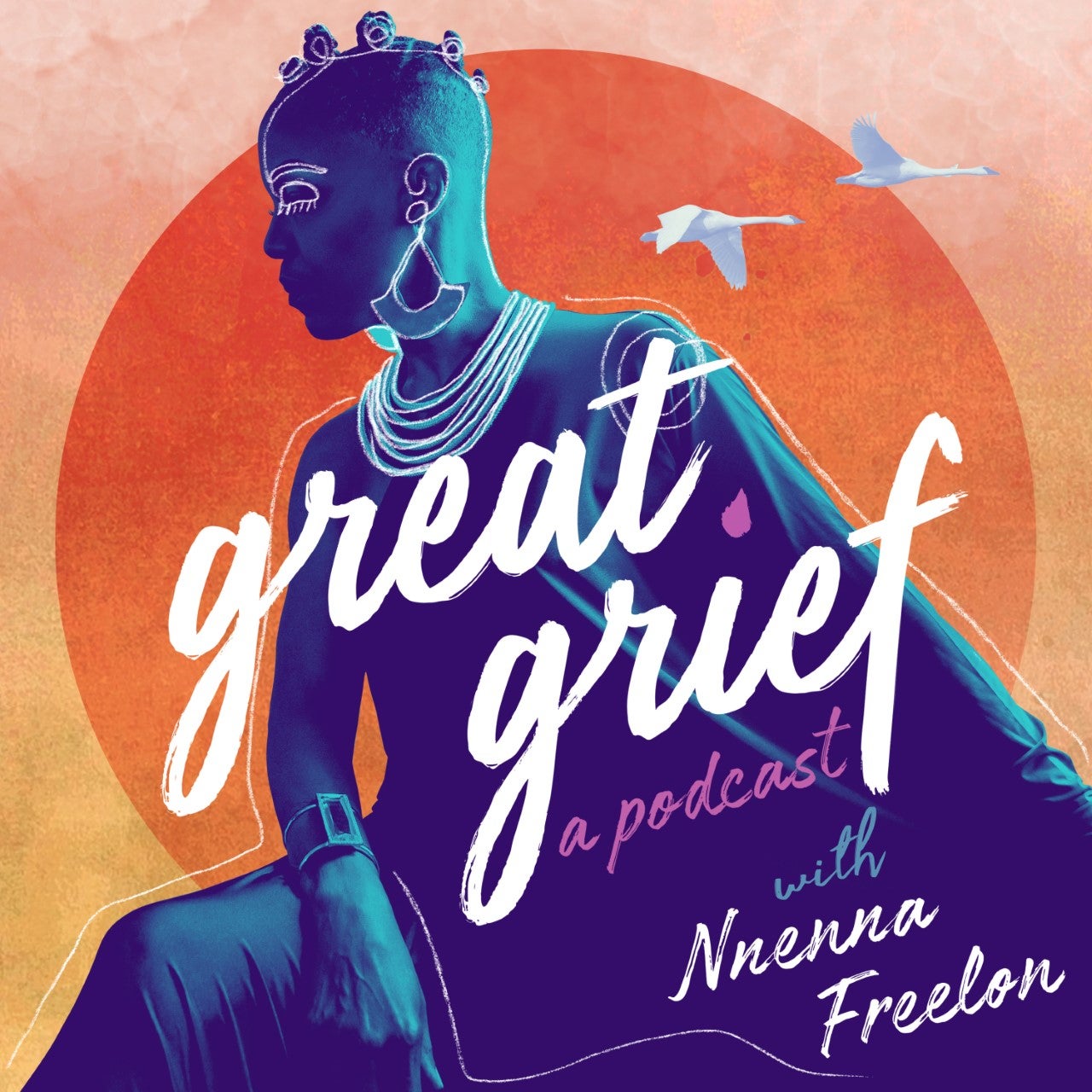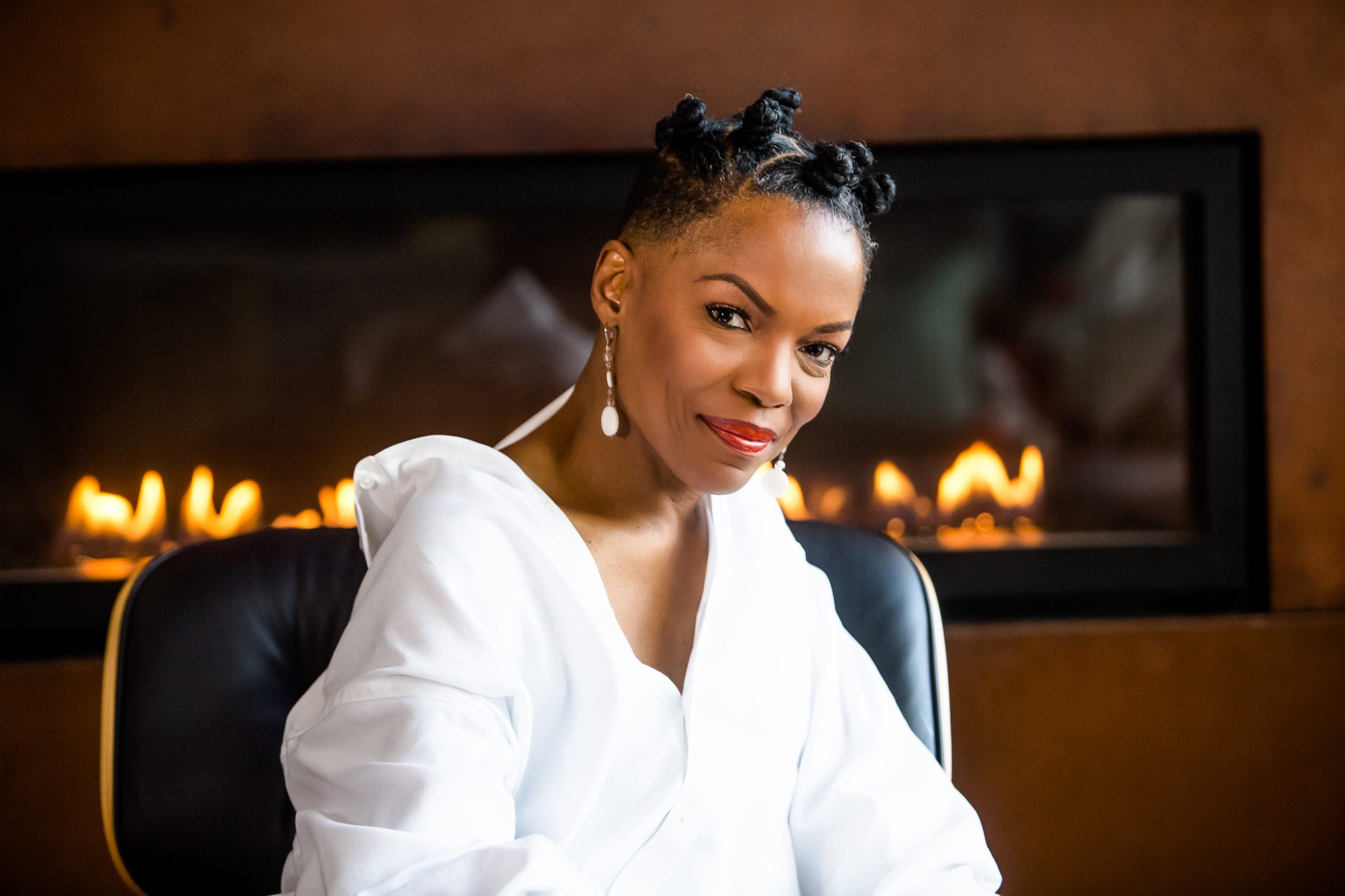
Nnenna Freelon’s first deep encounter with grief happened in July 2019.
It was the year that the multi-Grammy nominated jazz singer’s husband of 40 years, world-renowned architect Phil Freelon, died after a three-year battle with amyotrophic lateral sclerosis. Six months later, Nnenna experienced loss again when her younger sister died from cancer and shortly after that, her dog, Basie, died as well.
As she was dealing with her own grief, Nnenna was also experiencing sorrow along with the rest of the world as COVID-19 claimed the lives of millions of people worldwide. Living alone in the North Carolina home that she once shared with Phil, the lockdown gave her the time and space she needed to process her pain.
Nnenna is now chronicling her journey of processing loss through a new podcast called Great Grief and her first album in more than a decade titled Time Traveler, which she released in May as a dedication to her late husband.
“Phil was our [family’s] anchor,” Nnenna tells ESSENCE. “He was a great husband, father [and] grandfather. Most of all, for me, he was my soulmate.”
The couple met in July 1978 on a mutual friend’s front porch in North Carolina while Nnenna was in town scouting a graduate school –– well before her music career took off. She and Phil instantly connected and within 15 months, they were married. They had three children together and shared seven grandchildren.
But when Phil, known for his work on the National Museum of African American History & Culture and other notable buildings, was diagnosed with ALS in 2016, Nnenna took a break from her music career to care for him until he died.

Nnenna’s latest album, Time Traveler, features reinterpretations of songs that the couple enjoyed during their marriage including tracks like “If This World Were Mine,” “I Say a Little Prayer” and “Betcha By Golly Wow.” Nnenna also wrote two original songs for the album including the title track, which features a voice memo that Phil left her.
The album title was inspired by the couple’s love for science fiction, but also from Nnenna’s complicated relationship with the concept and meaning of time following Phil’s initial diagnosis.
“How much [time] do you have? What’s the quality of it going to be? So you chase time and you fear time and you wish you had more,” she says. “And at the same time it seems like a long time to be dying. Time emerged as this thing that I had never considered in so many different ways, so Time Traveler was just perfect.”
Nnenna’s podcast, Great Grief, which she says is a companion to the album, was born from the voice memos, journal entries and songs she’s created over the last year. After sharing a story with a friend, they told her that she needed to create a podcast for the world to hear. At first, Nnenna was hesitant as she felt it may have been too personal, but her friend ultimately convinced her by reminding her that loss wasn’t a singular experience.
“She was like, ‘Girl, what you’re talking about everybody goes through,’” Nnenna recalls. “And she also suggested that grief was so universal that even though I’m speaking about what happened to me that anybody could relate to it.”

Great Grief released in June in partnership with North Carolina Public Radio and is available on all streaming platforms. On the podcast, Nnenna opens up about her and Phil’s love story, lessons through the high and low moments of his ALS journey and her struggles with identifying as a widow.
“I really hope that people are not frightened by the title because it’s huge,” she says. “But I mean great in all the many ways we can think of great.” For Nnenna, the word “great” means in size and weight, but also a sense of excellence and how the painful experiences have made her a better person.
When she started putting the podcast together last winter –– with the help of an all-Black women team –– she realized that of the podcasts that deal with loss, Black women’s voices weren’t present enough. Nnenna, who considers herself to be spiritual, also found that many of them were faith-based, which she says doesn’t reach everyone. But she also makes it a point to share with her listeners that she isn’t a mental health expert, rather she’s just a human who is still navigating her own life-altering experience. (She’s been going to counseling.)
“I’m really, sister, trying to stay in my lane,” she says. “I’m a singer and storyteller. I am not your therapist and if you have a problem, it’s a song I got for you.”
Nnenna hopes that the podcast will give listeners permission to deal with grief, which she says is a process that you can’t ignore for long.
“I’m just learning that grief has powerful gifts that she can give you. But not unless you sit with her,” Nnenna says. “First of all, you can’t outrun her because she can wait … Grief is just waiting for you to turn around and say ‘OK, let’s talk.’”

Three episodes of Great Grief have been released so far, but Nnenna says she plans to return in August with new episodes and also a second season in the coming months. She intends to explore the many aspects of bereavement on the show. Through her podcast, Nnenna hopes to create a sense of community so that people know they don’t have to process loss alone.
“This is the only thing I can say that I know for sure, is that you do not heal in isolation,” she says. “Nobody goes into a closet and says, ‘I’ll be back in two years and I’ll be fine.’ That doesn’t happen.”
She adds, “We heal in community with each other. We heal because we have conversations. We heal because we share stories. That’s how we heal and we as Black women need to be the shoulders that other Black women lean on, especially now.”